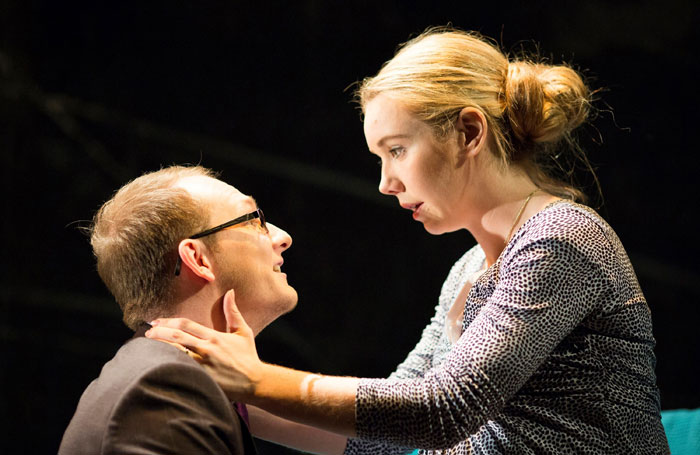Consensual at Ambassadors Theatre, WC2
reviewed for The Times, 9 October 2015
![]()
Seven years ago Diane and Freddie ended up in bed together. Only problem: she was his school counsellor. He says she groomed him, she says he stalked her. At crucial moments, both deny giving consent.
Evan Placey’s clunky play starts with a klutzy conceit; when Freddie walks back into her life, Diane is just about to give a PSHE lesson on sexual consent to her Year 10s. It’s all painfully well-intentioned, scenes of would-be-gritty drama intersecting with worthy classroom discussions.
Nonetheless, at the heart of Pia Furtado’s sensitive staging for the National Youth Theatre (NYT) is a performance of extraordinary maturity by the young actress Lauren Lyle. Oscillating between censoriousness and vulnerability, Lyle’s Diane is a woman desperate to do — and be seen to do —the right thing, in a world in which it’s hard to tell abuse and intimacy apart.
The NYT’s mission has always been to identify and train the next generation of talent, and under Paul Roseby’s leadership it continues to offer some of the best opportunities a young actor can find. Nowadays, however, it seems as interested in theatre for youth as theatre by youth. The result is a slew of plays set in classrooms; because this is the NYT’s nine-month training company for 18 to 21-year-olds, that means ensembles of 20-year-olds playing gangs of 15-year-olds, imagined by earnest 30-year-olds. In the Islington Community Theatre’s recent Brainstorm, real teenagers played themselves, with staggering honesty and simplicity; by comparison, this all feels a bit Catherine Tate, warmed up at Christmas.
Nonetheless, the young principals shine. As Freddie, Diane’s damaged accuser, Oscar Porter-Brentford is gawky and unprepossessing on stage, but then again, he’s supposed to be. And slowly, but surely, his charisma emerges; as we eventually flash back to the fatal night, we’re drawn in, just like Diane, to this all-too-vulnerable chancer.
Meanwhile, Conor Neaves is a slow-burn revelation as Pete, Diane’s struggling husband. The classroom gang remain repulsive throughout; we leave sceptical of any central framework for teaching PSHE in such an unpredictable minefield, but full of admiration for the heroes who try.







